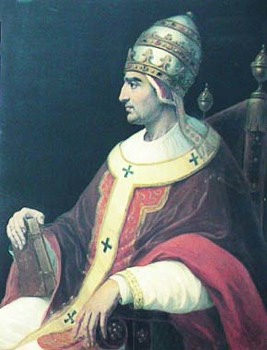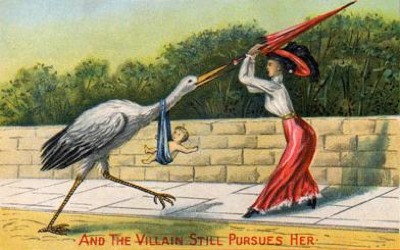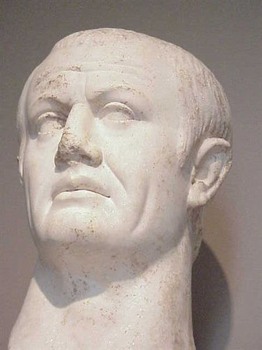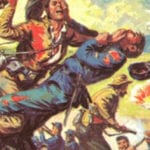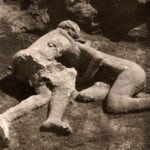 History
History  History
History  Weird Stuff
Weird Stuff 10 Wacky Conspiracy Theories You Will Need to Sit Down For
 Movies and TV
Movies and TV 10 Weird Ways That TV Shows Were Censored
 Our World
Our World 10 Places with Geological Features That Shouldn’t Exist
 Crime
Crime 10 Dark Details of the “Bodies in the Barrels” Murders
 Animals
Animals The Animal Kingdom’s 10 Greatest Dance Moves
 Movies and TV
Movies and TV 10 Box Office Bombs That We Should Have Predicted in 2025
 History
History 10 Extreme Laws That Tried to Engineer Society
 History
History 10 “Modern” Problems with Surprising Historical Analogs
 Health
Health 10 Everyday Activities That Secretly Alter Consciousness
 History
History 10 Dirty Government Secrets Revealed by Declassified Files
 Weird Stuff
Weird Stuff 10 Wacky Conspiracy Theories You Will Need to Sit Down For
 Movies and TV
Movies and TV 10 Weird Ways That TV Shows Were Censored
Who's Behind Listverse?

Jamie Frater
Head Editor
Jamie founded Listverse due to an insatiable desire to share fascinating, obscure, and bizarre facts. He has been a guest speaker on numerous national radio and television stations and is a five time published author.
More About Us Our World
Our World 10 Places with Geological Features That Shouldn’t Exist
 Crime
Crime 10 Dark Details of the “Bodies in the Barrels” Murders
 Animals
Animals The Animal Kingdom’s 10 Greatest Dance Moves
 Movies and TV
Movies and TV 10 Box Office Bombs That We Should Have Predicted in 2025
 History
History 10 Extreme Laws That Tried to Engineer Society
 History
History 10 “Modern” Problems with Surprising Historical Analogs
 Health
Health 10 Everyday Activities That Secretly Alter Consciousness
20 More Interesting Historical Oddities
Following hot on the heels of the very popular 20 Historical Oddities You Probably Don’t Know, and Another 20 Historical Oddities You Don’t Know, we now present you with a third list of historical oddities. Thankfully for us, history is so full of them that we can continue this series for many years in the future!
1. In 1752, there were only 354 days in Great Britain and its colonies. This was because Britain adopted the Gregorian Calendar in place of the Julian calendar. The lost days were September 3 – September 13 inclusive.
2. The Hundred Years’ War (a war to determine who the rightful King of France would be) was actually 116 years long. It was during this war that Saint Joan rose up in France to lead her army to victory.
3. From the year 1309 to 1377, the Roman Catholic Papacy was not based in Rome – it was based in Avignon, France. This was primarily over a dispute with the Holy Roman Empire. In 1378, Pope Gregory XI (pictured above) returned the seat of the Pope to Rome.
4. Arabic numerals (the ones used in English) were not invented by the Arabs at all – they were actually invented by Indian mathematicians. They were modified and transferred to North African Arab mathematicians and transmitted to Europe in the Middle Ages.
5. After the U.S Civil War, about 33% – 50% of all U.S. paper currency in circulation was counterfeit.
6. In 1938, Time Magazine declared Adolf Hitler “Man of the Year”. In the same year he took full and absolute command over the German military, stated that he intended to crush Czechoslovakia, took greater control over Austria by threatening to invade, and expelled 12,000 Jews from Germany.
7. In 1685, playing cards were used as currency in New France (the French territories of North America) because of a coin shortage.
8. In 1892, Italy raised the minimum age for marriage for girls – to 12.
9. The first contraceptives were used in Ancient Egypt. Egyptian women would use vaginal suppositories made of acidic substances and lubricated with honey or oil. (An early form of English contraception is pictured above.)
10. The shortest war on record was fought between Zanzibar and England in 1896. Zanzibar surrendered after 45 minutes.
11. The very first bomb dropped by the Allies on Berlin during World War II killed the only elephant in the Berlin Zoo.
12. “In God We Trust” was not officially the motto of the United States of America until 1956. The Congressional Record of that year reads: “At the present time the United States has no national motto. The committee deems it most appropriate that ‘In God we trust’ be so designated as U.S. national motto.”
13. John Aubrey, the diarist, tells a story about the Earl of Oxford. When the Earl made a low obeisance to the Queen, he happened to let go a fart, at which he was so ashamed that he left the country for 7 years. At his return the Queen welcomed him and said, “My lord, I had forgot the fart”! [Source]
14. Despite the terrible nature of and damage caused by the 1666 Great Fire of London, only 8 people were killed. This is despite the fire destroying at least 13,500 houses.
15. In 74 AD, Emperor Vespasian (pictured above) had run out of money due to a civil war. In order to raise funds, he created the world’s first public pay toilets. When his son Titus criticized him for it, Vespasian pointed out that money (even earnt through urine) did not smell. This gave rise to the common saying “Pecunia non olet” – “money does not smell”.
16. The Bank of America was originally called the Bank of Italy. It was created in 1904 by Amadeo Giannini to cater to immigrants from Italy. After merging in the 1920s with the “Bank of America, Los Angeles”, it officially became “Bank of America”.
17. In the First Liberian War in the 1990s, General Joshua Milton Blahyi (also known as General Butt Naked) would lead his troops naked except for shoes and a gun – he did this at the suggestion of the devil, who Blahyi claims telephoned him at age 11. He believed it would protect him from the bullets (and apparently it did – as he is still alive, though he is now a religious preacher). General Butt Naked is pictured above.
18. At the start of World War I, the US Airforce (then a component of the US army) had only 18 pilots and 5 – 12 airplanes.
19. Contrary to popular belief and legend, Daniel Boone not only did not wear a coonskin cap, he detested them. Instead, Boone wore a felt cap.
20. In 1838, General Antonio López de Santa Anna (President of Mexico) had his leg amputated after his ankle was destroyed by canon-fire. He ordered a full military burial for it.
